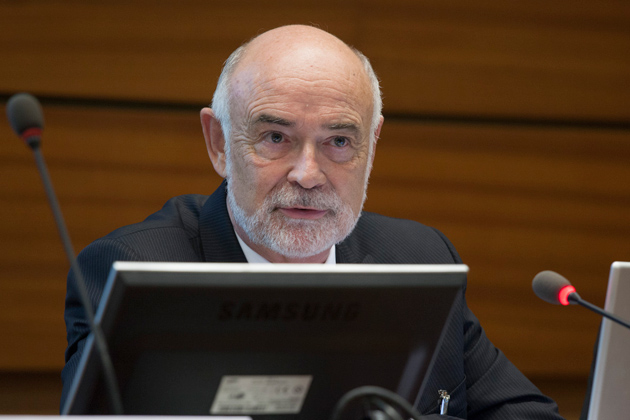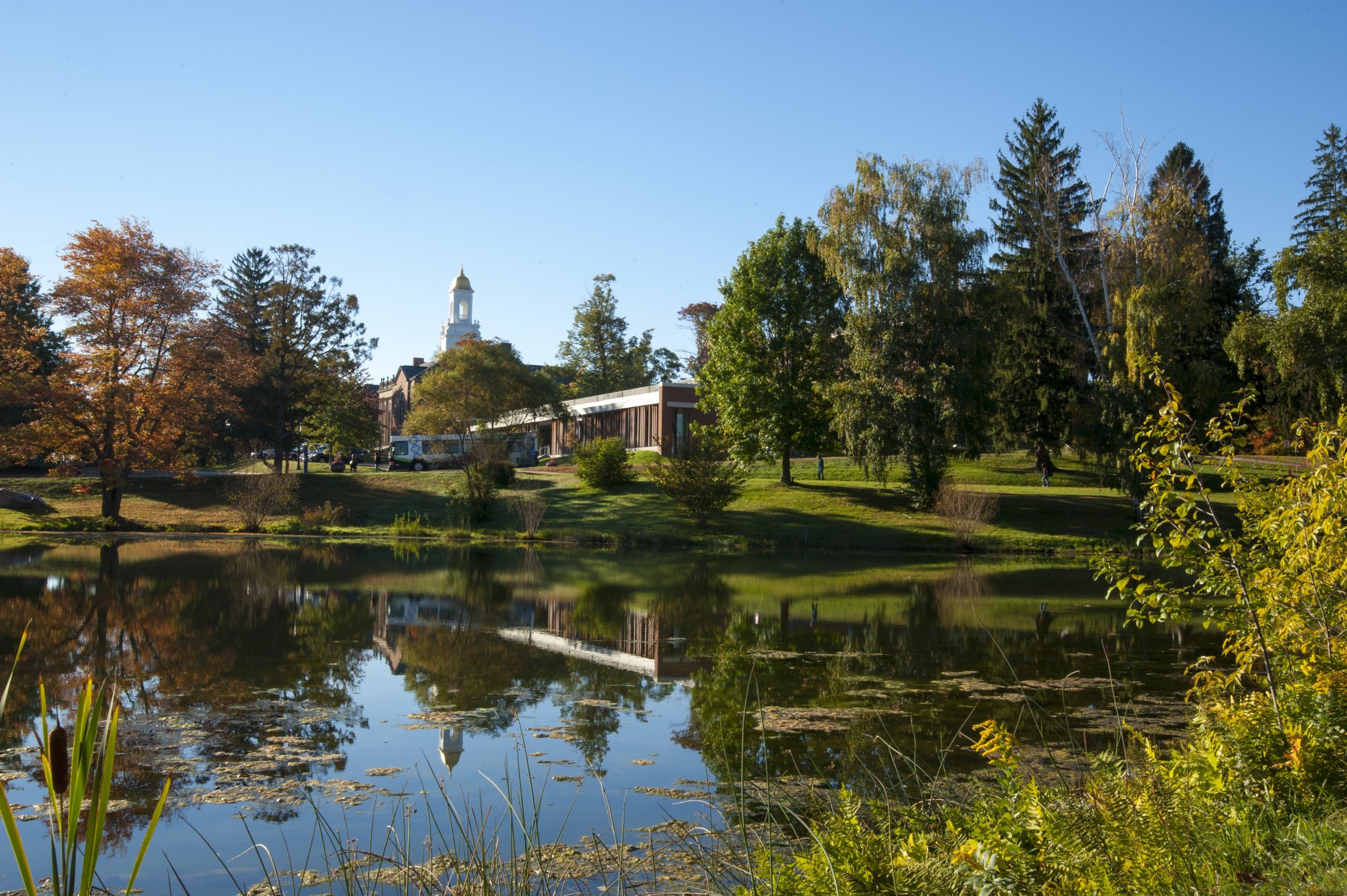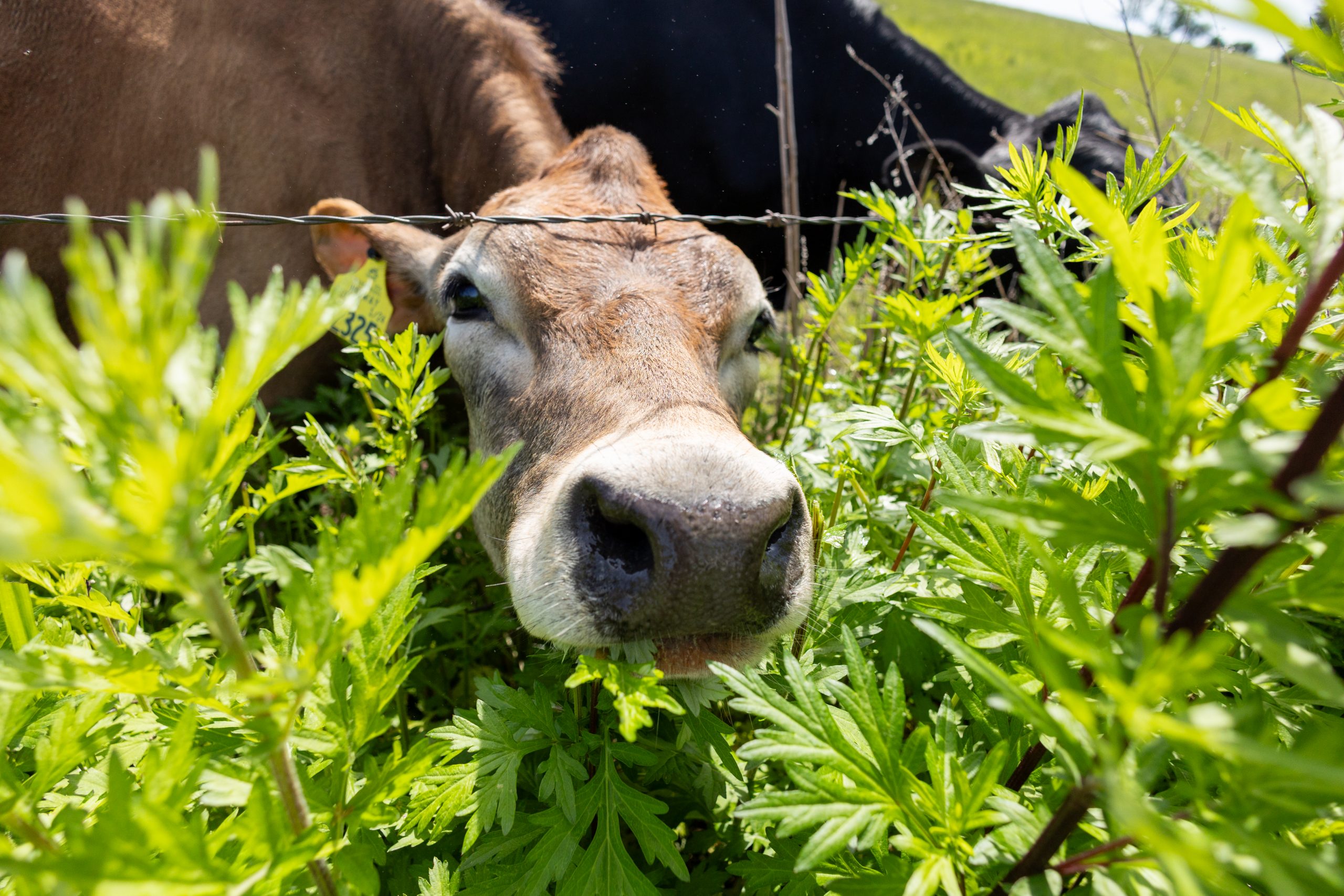Two UConn professors returned to Storrs this semester from Washington, D.C., where they spent a year as two of just 13 scientists chosen nationwide to work as Jefferson Science Fellows for the Department of State and the U.S. Agency for International Development (USAID).
The selective program invites prominent university professors from scientific disciplines to spend a year in Washington giving expertise to support the work of U.S. foreign relations and international development programs. The program is supported by the professors’ universities, the State Department, and the National Academies of Science.
Educating policymakers, diplomats

(Photo by Eric Bridiers)
David Benson, professor of molecular and cell biology, spent his year in the Department of State’s Bureau of International Security and Nonproliferation, working with the Office of Biological Policy Staff. His work at UConn involves the biogeography of microorganisms, so his expertise was put to use assessing biological weapons issues.
One of Benson’s projects involved assessing and providing opinions on how to regulate research that focuses on potentially dangerous microorganisms. A major example, he explains, is the H5N1 influenza virus. To find a cure, scientists need to do research on the virus; but doing that research involves creating more virulent strains, which produces its own set of risks.
“In science, you look at numbers and trends on graphs,” says Benson. “In policy, you look at things from a 30,000-foot level. You learn quickly that you can’t put that much detail into memos. You learn to sift the sand and come out with the diamonds.
“I met so many good people who are really trying to do the best they can for our country – smart people, competent people,” he adds. “I learned an enormous amount from them.”
In August, Benson served on the U.S. delegation to the Biological Weapons Convention Meeting of Experts, a conference sponsored by the United Nations in Geneva. At the conference, he and his colleagues from the Office of Biological Policy Staff presented what he calls a “mini-university” on microbiology and molecular diagnostics to a room full of diplomats.
“We wanted to educate diplomats from around the world about some basic science,” he says. The session drew a standing-room only crowd.
In science, you look at numbers and trends on graphs. In policy, you look at things from a 30,000-foot level.
.Benson says that his experiences in policy this year will definitely have an impact on his teaching. This semester he is teaching a molecular and cell biology course called Microbes that Changed History. Many of the microbes he will discuss in class – smallpox, bubonic plague, and influenza, to name a few – shaped history in ways related to today’s biological warfare.
“During the bubonic plague, people tossed the bodies of the dead over castle walls to infect those inside,” he explains. “These diseases affected all of civilization.”
Promoting children's literacy around the world
Sara Harkness, professor of human development and family studies, spent her year as senior advisor to the Health and Education teams in the Latin American and Caribbean Bureau at USAID, working primarily on children’s literacy issues. Among the first behavioral scientists to be accepted to the Jefferson Fellows program, she describes herself as a cross-cultural researcher interested in children’s health and learning in different cultural contexts.
In recent years, she explains, international development programs in education focused on increasing children’s attendance at school. With the achievement of this goal, the focus has now changed to making sure that children at school are actually learning the skills they need in order to succeed.
A highlight of her year was a site visit to a USAID-sponsored project to promote early grade reading in a rural area of Guatemala. On that trip, Harkness accompanied the team of people who are implementing and evaluating the program. The area is home to Mayan-speaking communities, where many children do not use Spanish, the national language, until they start school at age 6 or older.
Teachers, on the other hand, often do not speak the local language, and have been trained to teach in Spanish. As a result, the Mayan children often struggle, and many drop out before even reaching second grade.
“Their teacher is at the front of the room speaking Spanish, and often they can’t understand,” says Harkness. “So they sit in a corner, and after awhile they just don’t go anymore.”
The USAID project aims to improve this situation by providing teacher training and coaching for bilingual classrooms, and involving parents and the community in activities to promote reading, says Harkness. The project’s evaluations will determine what aspects of the intervention are most effective in increasing children’s reading skills.
As an academic with a keen interest in how research can be applied, Harkness is happy she had the opportunity to participate in the development and oversight of policy-related programs to benefit children and their families in various parts of the developing world.
“I’m very grateful that UConn supports this kind of experience,” she says.



